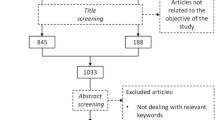Abstract
Many patients recover following even a severe brain injury and go on to make a good physical recovery such that to an outside observer they would appear to be “normal.”
However, as many family members, friends, and work colleagues will attest, the legacy of even a mild head injury can be neurologically and psychologically challenging for all those involved, not least for the patient themselves. Many of these issues can have a significant impact on a person’s life whether it is interpersonal with family and friends, occupational with return to the workplace, or recreational, which in some cases may entail returning to an activity that precipitated the original injury.
Broadly speaking, these issues can be categorized as behavioral or degenerative. Behavioral issues can be physical, emotional, or cognitive, and these often manifest in the recovery period and may improve over time. Early recognition of these issues is important in order to counsel patients and their families appropriately and where possible instigate appropriate therapies. Degenerative issues often develop many years after the initial injury or injuries, and they are generally progressive in nature. These are meant to represent the long-term consequences of the initial traumatic insult; however, in reality, separating out a delayed neurodegenerative response from the effects of the primary injury can be difficult.
Access this chapter
Tax calculation will be finalised at checkout
Purchases are for personal use only
Similar content being viewed by others
References
van der Naalt J, Timmerman ME, de Koning ME, et al. Early predictors of outcome after mild traumatic brain injury (UPFRONT): an observational cohort study. Lancet Neurol. 2017;16:532–40.
Lucas S, Smith BM, Temkin N, et al. Comorbidity of headache and depression after mild traumatic brain injury. Headache. 2016;56:323–30.
Jaeger M, Deiana G, Nash S, et al. Prognostic factors of long-term outcome in cases of severe traumatic brain injury. Ann Phys Rehabil Med. 2014;57:436–51.
Mollayeva T, Kendzerska T, Mollayeva S, et al. A systematic review of fatigue in patients with traumatic brain injury: the course, predictors and consequences. Neurosci Biobehav Rev. 2014;47:684–716.
Wood RL. Accelerated cognitive aging following severe traumatic brain injury: a review. Brain Inj. 2017;31:1270–8.
Hicks AJ, Gould KR, Hopwood M, et al. Behaviours of concern following moderate to severe traumatic brain injury in individuals living in the community. Brain Inj. 2017;31:1312–9.
Martland HS. Puch drunk. J Am Med Assoc. 1928;91:1103–7.
Corsellis JA, Bruton CJ, Freeman-Browne D. The aftermath of boxing. Psychol Med. 1973;3:270–303.
Omalu BI, DeKosky ST, Minster RL, et al. Chronic traumatic encephalopathy in a National Football League player. Neurosurgery. 2005;57:128–34.
Casson IR, Pellman EJ, Viano DC. Chronic traumatic encephalopathy in a National Football League player. Neurosurgery. 2006;58:E1003.
Mez J, Daneshvar DH, Kiernan PT, et al. Clinicopathological evaluation of chronic traumatic encephalopathy in players of American football. Version 2. JAMA. 2017;318:360–70.
Edwards G, Zhao J, Dash PK, et al. Traumatic brain injury induces tau aggregation and spreading. J Neurotrauma. 2020;37:80–92.
Huang CH, Lin CW, Lee YC, et al. Is traumatic brain injury a risk factor for neurodegeneration? A meta-analysis of population-based studies. BMC Neurol. 2018;18:184.
Manley G, Gardner AJ, Schneider KJ, et al. A systematic review of potential long-term effects of sport-related concussion. Br J Sports Med. 2017;51:969–77.
Bernick C, Banks S. What boxing tells us about repetitive head trauma and the brain. Alzheimers Res Ther. 2013;5:23.
Gallo V, Motley K, Kemp SPT, et al. Concussion and long-term cognitive impairment among professional or elite sport-persons: a systematic review. J Neurol Neurosurg Psychiatry. 2020;91:455–68.
Guskiewicz KM, Marshall SW, Bailes J, et al. Association between recurrent concussion and late-life cognitive impairment in retired professional football players. Neurosurgery. 2005;57:719–26.
Washington PM, Villapol S, Burns MP. Polypathology and dementia after brain trauma: does brain injury trigger distinct neurodegenerative diseases, or should they be classified together as traumatic encephalopathy? Exp Neurol. 2016;275:381–8.
Stern RA, Adler CH, Chen K, et al. Tau positron-emission tomography in former national football league players. N Engl J Med. 2019;380:1716–25.
Author information
Authors and Affiliations
Corresponding author
Editor information
Editors and Affiliations
Ethics declarations
No financial support has been required for this research.
Conflict of Interest
None declared.
Rights and permissions
Copyright information
© 2021 Springer Nature Switzerland AG
About this chapter
Cite this chapter
Honeybul, S. (2021). Long-Term Neurological Consequences of Traumatic Brain Injury. In: Honeybul, S., Kolias, A.G. (eds) Traumatic Brain Injury. Springer, Cham. https://doi.org/10.1007/978-3-030-78075-3_23
Download citation
DOI: https://doi.org/10.1007/978-3-030-78075-3_23
Published:
Publisher Name: Springer, Cham
Print ISBN: 978-3-030-78074-6
Online ISBN: 978-3-030-78075-3
eBook Packages: Biomedical and Life SciencesBiomedical and Life Sciences (R0)




